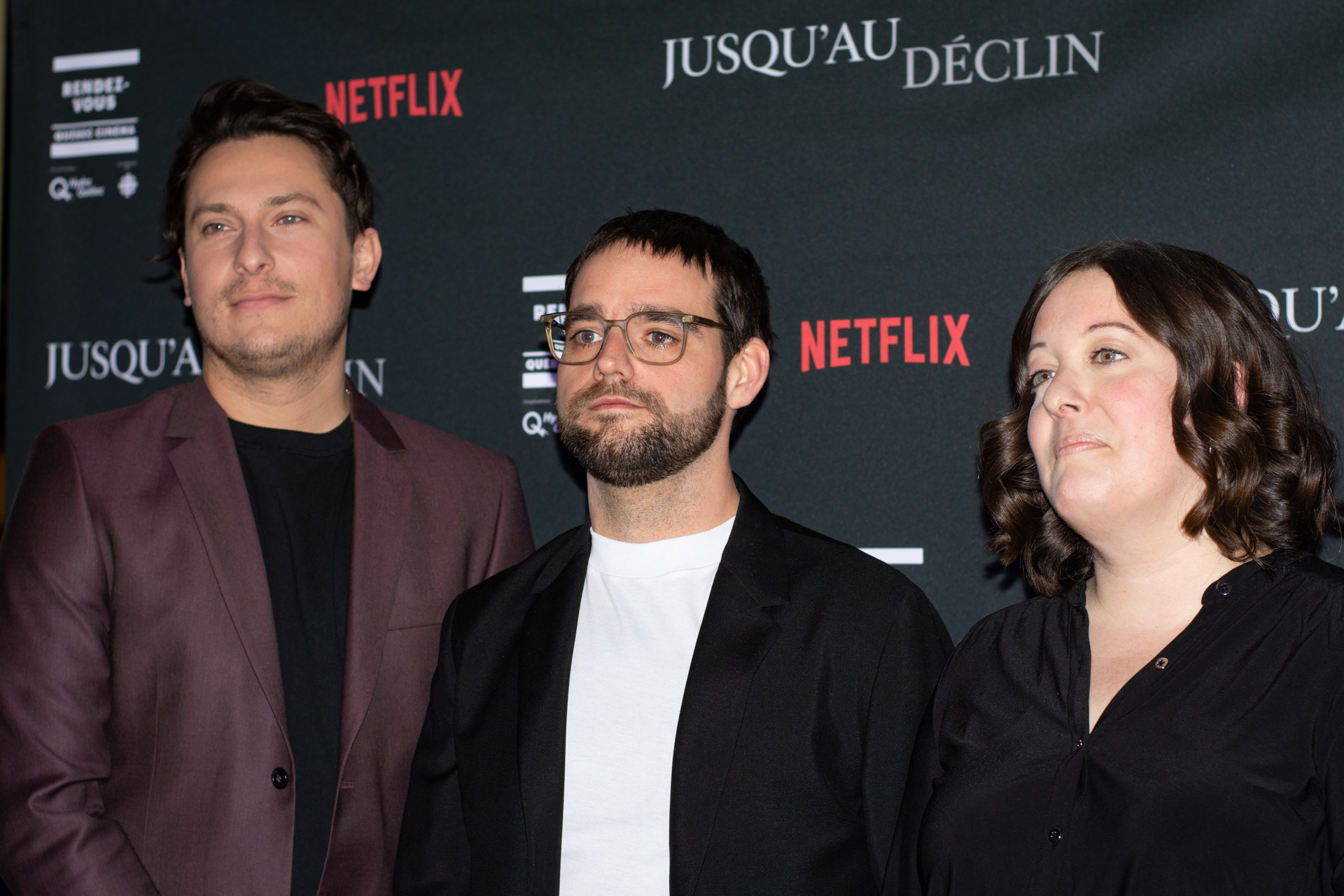“This isn’t my first film, but it almost feels like it,” said director Patrice Laliberté
Quebec’s first film produced as a Netflix original premiered at the 38th edition of the Rendez-vous Québec Cinéma festival on Feb. 28, a milestone for the Quebec entertainment industry, according to director Patrice Laliberté.
Laliberté explained that high expectations for the province’s first Netflix production made him somewhat nervous on the first day of filming.
“It’s an enormous stress,” Laliberté told The Concordian. “This isn’t my first film, but it almost feels like it.”
While The Decline is his first feature-length film, Laliberté has directed a number of shorts that address a deep fear of the world ending.
In spite of the pressure, Laliberté didn’t shy away from tackling topics that hit close to home.
He describes this film as “very much a thriller and action movie” that also takes on divisive issues such as eco-anxiety, gun control and the migrant crisis.
“I definitely feel [eco-anxiety] every day, although I don’t think I’m organized enough to become a survivalist,” Laliberté said with a laugh. “A survivalist lifestyle is very withdrawn—it’s all about protecting me, my stuff and distrusting the government. That’s not part of my fundamental values at all.”
Set in rural Northern Quebec and filmed in the Laurentians for the region’s wilderness and proximity to Montreal, the thriller follows a man (Guillaume Laurin) who undergoes survivalism training until his fate takes a tragic turn.
The director first heard of the term “survivalist” when studying urban militias and right-wing extremist groups for a film project in 2015. The term describes a member of survivalism, a movement in which individuals actively prepare for doomsday scenarios.
“One of the guys involved with the [urban militia] group was a survivalist, and this really made me want to explore the subject more, which I got to do through research for the [Decline] screenplay,” Laliberté said.
With a $5 million budget, Laliberté, who co-wrote the screenplay with Nicolas Krief and Charles Dionne, didn’t take the project lightly.
The release of The Decline comes after a controversial 2017 agreement—spearheaded by then Heritage Minister Mélanie Joly—between the federal government and Netflix. The deal would have Netflix invest $500 million in original Canadian productions over five years. However, it drew criticism as it made no mention of a commitment to producing francophone content.
In anticipation of The Decline’s online release, Netflix will dub the film in 10 languages and subtitles will also be made available. Laliberté has already watched his film in English.
“It’s pretty funny listening to the actors’ voices with their accents,” Laliberté said. “Using the same actors for the English version was Netflix’s idea, and I really liked it. It keeps all the colour of Canadian, francophone speech, even though they’ve dubbed their own voices.”
Until he begins writing his next project, Laliberté is focused on planning the fifth edition of Plein(s) Écran(s), an online film festival that he founded in 2016, which is hosted entirely on Facebook. Participants submit their original short films for review and may earn thousands of dollars in prize money. Following the broadcasted award ceremony, viewers can watch the winning films on the Plein(s) Écran(s) Facebook page for 24 hours.
Audiences can catch screenings of The Decline in select theatres for a week, starting March 13. The movie will be available to stream on Netflix as of March 27.
Photos by Laurence B. D.
